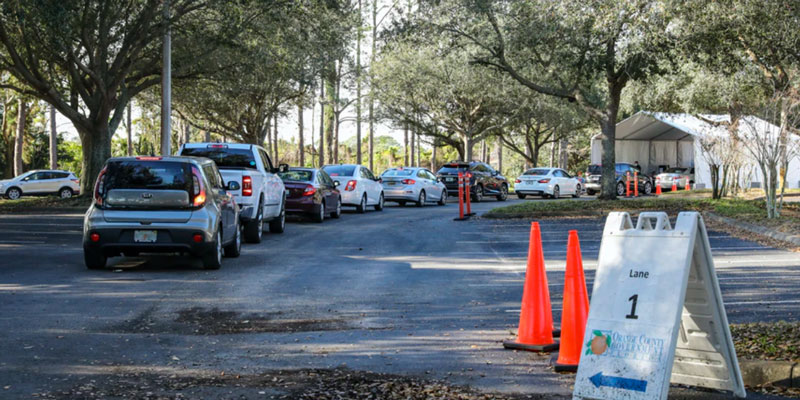One of the bigger local stories in Rhode Island, right now, is the (alleged) killing of an East Greenwich teen by a long-rap-sheet thug who shared beforehand his intention to drive while intoxicated, albeit with his mind on harming himself rather than others. The story is heartbreaking on multiple fronts, but for this post, let’s detach just bit from the emotion and think about how our political and media systems are supposed to work.
In a representative democracy, the laws are supposed to reflect our collective values (within the boundaries of God-given rights) as expressed through the people we elect. The question in this case, therefore, is whether we, collectively, think the government should have policies that (to be specific) would have kept this guy from being able to drive that night, whether because he was locked up or because he feared the penalties for being caught even if he was driving safely. To express our preference, we have to hear from the people providing electoral options for the most relevant government office (attorney general), and then we have to weigh their differences on this issue as well as every other issue of concern.
To this end, Democrat Attorney General Peter Neronha’s Republican challenger, Chas Calenda issued a strongly worded statement:
In 2019, Attorney General Peter Neronha’s office granted Mr. Segura probation on charges of possessing a stolen motor vehicle and home invasion, despite having served years in prison for multiple home invasions, a sexual assault, and obstruction of the judicial system. Segura has also been found to be in violation of several prior probationary sentences reaching as far back as 2010. The question begs: Why would the Attorney General offer probationary relief to a violent repeat offender with a history of probation violations.
Yet, two major Internet search engines turn up only a Providence Journal article and a WJAR story that mention Calenda. Of course, two major news mentions are not nothing, but this is only the first level of necessary review. If this is a tragic, isolated incident, Neronha can easy maneuver his way out by blaming life and the system and noting that he’s currently addressing this case. That’s why the landscape that the media consistently paints matters.
With that in mind, it is just as important to observe when the media does not collect nationwide anecdotes into a constant narrative as when it does. Gun stories? Of course. Aggressive Trump supporters? To be sure. Hate crime hoaxes before they are known to be hoaxes? Umm… yeah.
Yet, the likelihood that Rhode Islanders will find connection of this vehicular killing with, say, the Waukesha Christmas parade massacre anywhere but on Anchor Rising is next to nil — let alone connections with the larger progressive attempt to install politically motivated prosecutors and attorneys general and take a soft-on-crime position, often under the umbrella of “equity.”
Maybe local journalists think it wouldn’t be fair because they know and like Neronha and think attacks on him would be unfair. Maybe they’re right, but it’s not supposed to be their decision.
Featured image by Ante Hamersmit on Unsplash.
[Open full post]Interestingly, this is essentially the same point I just finished being proclaimed a racist for making with regard to the racial net worth gap, and an academic journal wouldn’t let a mainstream scholar make it:
I suspect the real beef the ELJ Executive Board has with the essay is that Larry explicitly stated that racism isn’t the problem today.
Instead, he pointed to “the cultural factors that have produced family disintegration, which in turn portends poor educational achievement, crime and poverty.” This is just mainstream conservatism: Rearing children in one-parent families is not ideal, no matter what your race or ethnicity. It can’t always be helped, but all too often it’s the result of irresponsibility. At 69.4%, the out-of-wedlock birth rate for African Americans is particularly and tragically high.
[Open full post]In a wide-ranging discussion loosely related to Internet narratives, Frank Rose and EconTalk host Russ Roberts touch on how immersive stories can draw us into activities outside their delivery — whether buying action figures, chatting with Broadway actors by the stage door, or digging into the history of non-fiction characters. As I set out to write a post on a couple things related to COVID after listening to this podcast, something clicked: COVID is an immersive cultural phenomenon.
We’re living the story, and that’s partly why we’re so divided and irreconcilable. We’re rooting for different sides in the drama, so to speak. Some people are on Team Security, and others are on Team Freedom.
Approaching my computer, just now, I’d intended to share Athena Thorne’s PJ Media article about how the rush to be COVID tested is creating nationwide problems for people who have compelling reasons to find out their infection status:
The combination of unfettered fear with the establishment push to get tested because “it’s the right thing to do” has created a nightmare scenario for people who have a legitimate need for the diagnostic procedure, as testing center lines grow. And grow. And grow. …
My intended point was (speaking of EconTalk), that this is evidence for the proposition that “price gouging” is good. As Thorne notes, “Maybe this policy of offering free testing willy-nilly to whomever wants it isn’t the wisest policy.” Price imposes a choice as to whether something is worthwhile. If there isn’t enough testing capacity, then imposing a cost will ensure that (for the most part) some of it is reserved for those who really need it, as demonstrated by their willingness to pay. Depending how scarce the good is, the “gouge” could even be nominal, just so long as there’s some requirement to make an exchange.
What nobody ever considers, however, is the cost of time. From the Team Freedom perspective, one might wonder why it is acceptable for government to tell people that they must spend time doing something, but everybody would rebel into outrage if the government were telling them they had to spend money. Do people really believe their time has such little value?
Some explanation may be found if we think of COVID as a cultural phenomenon. Going to stand in line for a test is participation in the pandemic experience. The waiters are fully immersed in the story. If they’re motivated by the “right thing to do” message, then long lines prove that the people waiting in them care about the world. They derive value from the wait. Such folks might even feel disappointed if a test or vaccination experience were too “in and out.”
This framing may also help explain why authorities seem to be skating by with so little accountability and so much ability to shift the narrative. Just today, I encountered the following in an Associated Press explainer about why vaccinated people have been getting COVID:
People might mistakenly think the COVID-19 vaccines will completely block infection, but the shots are mainly designed to prevent severe illness, says Louis Mansky, a virus researcher at the University of Minnesota.
Well… no. That’s not what we were told the vaccines were “designed” to do. It turned out to be what they do, and that has tremendous value, but the idea that vaccines should only be expected to take the edge off an illness is an entirely new narrative that appeared in recent months.
If we were all looking at COVID as a challenge that public health authorities had the job of managing, we might be incensed and worried as we see them conveniently adjusting the narrative to cover their lack of control. But if they’re more like the narrators of season 3 of The Coronavirus, viewers will accept some necessary adjustments, just as they accepted a close-enough Dumbledore when the first actor died before finishing the Harry Potter franchise.
Featured image by Mick Haupt on Unsplash.
[Open full post]On various issues of public controversy recently (notably transgenderism), some conservatives have suggested that forcing the population to assent to outlandish propositions is the point. Whether changing how society thinks about a particular matter is the central goal or incidental, progressives want to train the public to accept reality as whatever the activists say it is.
One wonders if something similar applies to the people whom progressive activists elevate. Nikole Hannah-Jones, a now-star professor who came to fame claiming to be some sort of history expert recasting America’s founding in terms of slavery, appears not to know what year the Civil War began.
Of course, if you were asking people on the street about a fact like that, you’d probably expand their target area to a decade, at least, but this is a person who’s “disrupting the narrative” and having a real effect on the education of young Americans. That she would make such a mistake really does suggest that forcing people to pretend activists are serious academics is another part of the point of domination.
[Open full post]Steve Ahlquist has a strange explainer on Uprise RI about how Barrington got away with implementing a minimum wage policy for municipal workers:
State law passed during the regime of House Speaker Nicholas Mattiello prevents municipalities from raising the minimum wage within their borders. But the state cannot prevent individual cities and towns from establishing their own labor and payment policies. So Barrington municipal leaders are free to pay their employees above minimum wage if they so choose.
This appears to illustrate the way progressives put governments and private-sector employers in completely different mental buckets. Why would anybody think a municipality couldn’t determine how much to pay its employees? What they can’t do is limit the freedom of other employers and their employees to set the terms of their own relationships just because they have the misfortune of being within the municipality’s borders.
Of course, whether municipal employees should get special treatment is something that Barrington residents should consider. On the other hand, one suspects that this policy in Barrington scores progressive points rather cheaply, because few municipal employees are in that territory of pay.
[Open full post]Criticisms of Allan Fung among Rhode Island Republicans have always struck me as either too demanding for purity or else founded in personal animosity (albeit perhaps with some justification… I don’t know). He was a solid Republican mayor and, from what I could see, a reasonably loyal member of the party. Given the GOP’s position in Rhode Island, one can’t expect the fields to sprout politicians who never stray, from cradle to grave, and put party building ahead of their own prospects.
So, claims that Fung was faking his party membership have never resonated with me. Moreover, the biggest hit against him thus far, a big report from the State Police, struck me at the time (here and here) as more plausibly evidence of that agency’s corruption under Governor Gina Raimondo.
I was a little surprised, therefore, to find myself thinking, “Please, no,” while reading Dan McGowan’s Boston Globe column suggesting Fung should run for governor rather than treasurer, which the former mayor has apparently been considering:
The former Cranston mayor just completed his first full year out of politics in almost two decades – he’s a law partner at Pannone Lopes Devereaux & O’Gara LLC – but he clearly misses the game. He’s been talking to friends and supporters behind the scenes about running for state treasurer, which might be easier to win, but would undoubtedly be less fulfilling.
McGowan thinks Fung would be a match for any of the Democrat candidates, all of whom will come out of a primary competition bruised and with crooked noses, and maybe so. To be sure, compared with them, it would be difficult for Republicans outside the inner rings of the game to see a reason not to prefer Fung.
That said, his detractors within the GOP can make a much stronger case for distrust now that Rhode Islanders have seen his wife, Barbara Ann Fenton-Fung, in action. She’s gone from recognition as a leader of Young Republicans more than a decade ago to potentially being one of the most radical members of the General Assembly. (See, e.g., here and here.) On a personal level, McGowan highlights Fenton-Fung’s feud with party chair, Susan Cienki, and she reinforced that tendency with her gratuitously aggressive and condescending response to Patricia Morgan’s travails last week.
A husband and wife can have very different political views, of course, but the feeling that Fenton-Fung pulled a massive bait-and-switch on conservatives — who have also been noticing that Nicholas Mattiello was much more of a firewall than they’d thought when they helped Fenton-Fung take him out of the General Assembly — will stain her husband, too. More importantly, the prospect of solidifying her status as half of a cross-State House power couple is enough of a practical concern that some voters who prefer Republicans will have to consider whether the long-term risk of elevating her stature is greater than the near-term benefit of better governance from the chief executive’s office.
That better governance might be slight, in any case, given that Fenton-Fung’s chamber of the legislature has a quietly progressive speaker and the Senate president is a union stalwart who has proven his willingness to swing non-union-issues to the progressives when opportunity arises.
Whatever Rhode Island needs in a governor, Fung isn’t it. At least not now. The above concerns won’t apply nearly as much to the race for General Treasurer, and political circumstances will certainly change over four or eight years. Who knows but that Allan’s significant other will join other Rhode Islanders in waking from the radical madness that has been sweeping the land and apologize for her role in it.
Featured image by Kenneth Zirkel on Wikipedia.
[Open full post]In fact, in my admittedly short experience with whiskeys, it may be my favorite of any style. (Subject to revision, of course!)
[Open full post]On WNRI 1380 AM/95.1 FM, John DePetro and Justin Katz discuss:
- Big lessons from Rep. Morgan’s star turn
- COVID lessons McKee won’t learn
- Hospitals’ early lesson in RI’s decay
- Disappointment in advance of the General Assembly session
- The big picture on immigration policy
Featured image by Jehyun Sung on Unsplash.
[Open full post]Ryan Rappa thinks the Fed is going to have to make debt relief part of any plan to control inflation. Actually, I should specify that whoever wrote his commentary’s headline thinks that, because Rappa’s essay mainly just ruminates about the problem. The closest he comes is this:
This risk is multiplied by other forms of debt, including mortgages, car loans, student loans, municipal and corporate debt, and financial leverage. Altogether, the total is in the ballpark of $100 trillion, much of which needs to be rolled over or refinanced on a regular basis, just like the federal debt. At least $2 trillion of this belongs to “zombie companies” that cannot make ends meet without borrowing more at ultra-low rates, and there are many near-zombie companies yet to come out of the woodwork.
As a result, the Fed has largely lost control of its most powerful tool against inflation. Yes, it plans to raise rates in 2022, but given the size of our collective debt, each minuscule bump is like trying to fix an electrical outlet with the power turned on.
I’m not so sure this is really a problem so much as a consideration to factor in. Massive debt and the interest payments thereto could mean smaller adjustments to interest will have bigger effects.
Naturally, there will be pain, but ultimately, there is no solution if people don’t insist on change, so motivating them could be part of a longer term solution, while ameliorating their experience could produce short-term fixes.
[Open full post]Following up on a question I sent to the state Department of Health, spokesman Joseph Wendelken tells me that instances of people being hospitalized while testing positive for COVID, but for whom COVID is entirely unrelated to the reason they’re in the hospital, account for only about 6% of the number.
The question gained increased prominence in Rhode Island as Christmas break approached and Kent Hospital Chief of Emergency Medicine Laura Forman told National Public Radio that the virus was spreading like “wildfire,” and “even patients who are coming in after car accidents or with ankle sprains are testing positive.”
According to Wendelken, “someone who goes to the hospital for another reason but is COVID-19 positive would not get admitted unless that other health issue was dire.” After “a closer clinical analysis on the charts of a subset of patients,” the DOH came to the conclusion that the virus “played a role ” in the conditions of 94% of patients testing positive for COVID.
Applying that percentage to the latest data from the DOH, of the 325 people currently listed as “hospitalized with COVID,” the virus would be deemed entirely incidental for about 20.
Nonetheless, the need for Rhode Islanders to postpone procedures because they are not “dire” must be counted among the costs of the current condition of our health care system. Though seasonally elevated, the number of COVID patients in Rhode Island is still down considerably from this point last year. If patients who would otherwise have been admitted are being turned away, then one would expect hospitals to have excess capacity, rather than experiencing a crisis.
I’ve asked if the state has a sense of how many patients are being turned away and whether patients for whom COVID is a factor in their illness are also not being admitted unless they are in dire circumstances.
Featured image by Vladimir Fedotov on Unsplash.
[Open full post]






